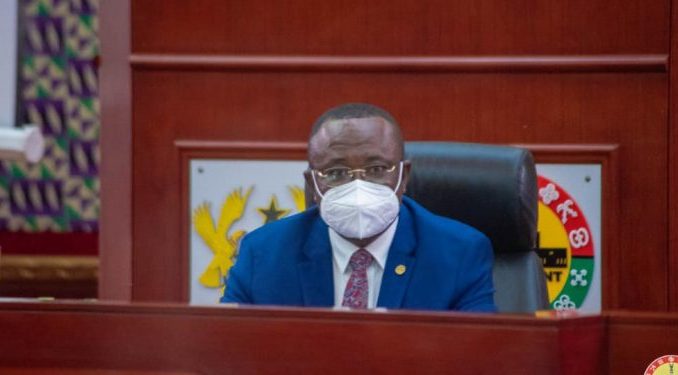The Supreme Court has ruled that a Deputy Speaker of Parliament can be counted during the formation of a quorum for parliamentary decision-making and participation in voting while presiding.
The Court presided over by Justice Jones Dotse, therefore, affirmed the approval of the 2022 budget without NDC MPs' participation.
Private Legal Practitioner Justice Abdulai filed the case against the Attorney General.
He had asked the Supreme Court to interpret Articles 102 and 104 of the 1992 Constitution and declare the action of Mr Osei Owusu as unconstitutional.
He also wanted the Supreme Court to declare the whole proceedings in Parliament on November 30, 2021, which led to the passage of the 2022 budget as unconstitutional insisting the Deputy Speaker should not have counted himself as an MP when he presided over proceedings.
However, in defence on behalf of the state, the Attorney-General (A-G), Godfred Yeboah Dame, argued that no express provision in the 1992 Constitution stops a Deputy Speaker presiding over proceedings from voting or counting himself as part of MPs present to form the right quorum.
He argued that the quorum in Parliament formed under Article 102 is different from the quorum formed under Article 104 of the 1992 Constitution.
He stated that the quorum under Article 102 is for the conduct of business in Parliament, and that is why Article 102 provides that it should be one-third of members.
“Given that Parliament presently is made up of 275 members, the quorum under Article 102 for the conduct of its business is 92 MPs,” the A-G submitted.
According to the A-G, based on the clear provision of Article 102, any person presiding, either the Speaker or Deputy Speakers, is precluded from being part of that quorum.
On the other hand, the A-G believes that the quorum under Article 104 (1), which deals with the determination of matters through voting in Parliament, requires at least half of all MPs, and such a quorum is not the same as the one in Article 102.
Mr Dame contends that unlike Article 102, which precludes a “person presiding” from being part of the quorum, Article 104 (2) precludes explicitly “The Speaker”.
The A-G, therefore, holds the position that only the person elected as “The Speaker” of Parliament is barred from forming part of the quorum under Article 104 when presiding, and not the Deputy Speakers who preside over proceedings.
The Apex Court comprising Justices Jones Dotse, Nene Amegatcher, Prof Ashie Kotey, Mariama Owusu, Lovelace Johnson, Clemence Honyenuga, and Emmanuel Kulendi affirmed the arguments of the Attorney General.
The court also struck out portions of the standing orders of parliament which reads
“A Deputy Speaker or any other member presiding shall not retain his original vote while presiding.”
Latest Stories
-
GRA shines at 45th Commonwealth Tax Administrators Conference in Papua New Guinea
16 minutes -
NPP race: David Asante declares support for Bryan Acheampong
23 minutes -
The Luckiest *712# to participate in JoySports Invitational Tournament 2025
1 hour -
National Boardroom Summit launched to strengthen governance and drive institutional growth
1 hour -
CBG nurturing future leaders with a flagship literacy initiative
2 hours -
Global Media Alliance, Japan Motors mark 15 years of Corporate Run & Walk
2 hours -
Lawyer petitions Mahama for Commission of Enquiry into Ablekuma North rerun violence
2 hours -
Cowbell Coffee launches national promo to reward loyal customers
2 hours -
OSP charges ex-NPA boss and others in GH¢280m extortion and money laundering scandal
2 hours -
Government will restore Bawku Naba Statue – Defence Minister Omane Boamah
3 hours -
Competition Law as a catalyst for Ghana’s 24-Hour Economy and export ambitions
3 hours -
Why brands must build a consistent PR voice long before crisis hits
3 hours -
Fidelity Bank, MobileMoney Ltd and JUMO align to boost financial inclusion with launch of BoseaLoan
3 hours -
We performed, but they didn’t vote – Freddie Blay blames NPP grassroots for 2024 setback
3 hours -
A modernised, expanded, responsive and happier Military is my goal – Defence Minister
4 hours

